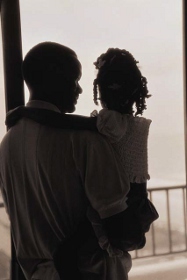Mayor’s Journal, 7th September, 2010
Pat and I just came back from a few days on the Atlantic coast. Of course, when we look out on the Atlantic in the evening we see a magnificent sunset over the ocean, with the sun setting like an immense fireball over the crisp, serene line of the oceanic horizon. It’s our version of your Pacific, and we were in the perfect place, the Bordeaux coastline where well over a hundred miles of uninterrupted perfect beach stretches from one end of your vision to the other. A very wide sandy beach separates wild pine forests from the sea, and on particularly hot days, the air is filled with a heady, aromatic mixture of pine oil and ocean spray. We have our favorite campground where we park our little van under the pine trees and then take the bikes to get us from one place to another along the cycle trails that weave through the woods and alongside the coastline. It’s a marvelous place to relax, and an even more wonderful place to reflect and meditate.
Okay, so that’s enough of the postcard perfect scenario. Where does it get juicy? you ask.
My particular inner work for these four days on the coast settled on stepping back from specific knowledge and stepping into a moment-by-moment questioning of my experience. How wild! I tried to turn the mind off every time it kicked into trying to ‘understand’ what was going on, not trying systematically to recall all of Ken’s teaching in order to place every sensation in a perfect Wapnickian context (which is very good under other circumstances). It was about trying to put theory to the side, and come back to the basic experience we are all seeking. If peace were there, it had to be simple to find, not complicated. In my life at home it was tricky finding enough quiet to do that kind of work. Here on the coast with so little going on I thought it would be the perfect place to try to shoot for the stars and get some of that great ‘peace that surpasses this world’.
And so I spent my time quietly presenting a few basic questions to my still restless spirit. “Peace is here, comfort is here,” I would suggest to myself, gazing out at the infinite calm of the sea. As I’m sure you all know, you can be in the most idyllic place in the world, and if you really pay attention to your thoughts and feelings, you’ll see that “perfect peace” is just not there. Honestly, the surroundings could not have been more beautiful, and yet the mind can come up with a hundred thousand infinitesimally small reasons why exquisite peace just couldn’t be found. I’ll give you a few stream-of-consciousness examples, starting with the “lights-out” on the first night:
Wow, this mattress isn’t as comfortable as my regular bed. Hope I won’t get a back-ache. That won’t be much fun for bike riding.
We’re pretty far from the toilet block – if I have to get up to pee in the night, it’s going to be one hell of a trek to get past all those tents and camping cars.
Several hours pass.
“Bam!” Wha….? Oh, a pine cone on the roof of the van, that’s all.
Two midnight prowls to the toilet block later (I know, I have a small bladder, but I drink a lot of water)… Ok, let’s start to get some sleep now.
“Clunk, clatter, bang, smack.”
Eh? Oh, they’re cleaning the toilet block, must be 6 am or so.
Dawn. 7am. 8 am.
I open the side door of the van. Hmm, what’s with this mist? No, honey, it’s cold and damp this morning, but it’ll warm up later. Let’s go get some fresh bread for breakfast.
(Many, many people, too many people, are heading in the direction of the little store to get their bread, late-risers like us trying to get there before all the baguettes are sold out.)
Okay, let’s just try to get there before this horde of hungry-looking Germans.
Hey, Pat, d’you see that, we got the last bread! (I look sheepishly away as a large Dutchman scans the shelf.)
Long line for the checkout.
Don’t worry, we’ll be eating soon; your first coffee is just minutes away. I reassure myself (no, not Pat; she’s not fussed; I am)
Do you get the picture yet? Here’s a hint: paradise is never, never, what it seems. Anything that appears to be an outside picture of comfort can usually have holes shot through it pretty quickly.
On the whole, I felt fine. All was well in my world. However when I paid minute attention to my mind, it was in a constant dialogue (war, perhaps?) with ‘reality’, appraising, assessing, judging, evaluating, and coming up with an endless stream of conclusions about why my state of mind was the way it was. In other words, the inside was perpetually ‘at the effect’ of the outside. The way I felt always, always, had something to do with what was going on around me. There was this sort of weird symbiosis between the specific circumstance of my body and this Geiger-like sensitive machine in my head whose needle would vacillate randomly between ‘happiness’ and ‘discomfort’.
All I could do was observe. I couldn’t control it at all. I would try to fix the needle on ‘happiness’, reminding myself that I had all that I could possibly want as a very privileged member of the human race, but it just didn’t work at all. I had vacation time, and money to spend, and a beautiful place to be: many things that most of the planet does not enjoy. Something inside would constantly come up with some conclusion, some explanation for the way I felt, and it was always based on what was going on around me. My mind had no independent capacity to fix its experience from within on something firm and stable.
That’s when I brought in Ken/ACIM, and a questioning technique I had decided to try to practice during this vacation. First, some basic reminders: “I could see peace instead of … (hungry hordes of Germans and Dutch).” What this means to me is that there is a latent experience available of something extraordinary that my mind is not availing itself of. This is no big revelation, of course. All religions speak of this in one form or another. But what is particular about the Course and Ken is that they help us to understand that this ‘something else’ is not really picked up by our normal (wrong) mind (which actively resists this), but by another faculty we possess but are unaware of (the right mind). Ken helps us further understand that this right mind is not really a ‘place’ as such that we switch to, but simply a process, an activity we engage our minds in: that of looking at our wrong minds but without the normal judgment and condemnation. As he says, it is being in our wrong minds but without judgment.
This is helpful because instead of looking for some mythical and impossible to achieve ‘other mind’, I don’t look for anything else at all. I just look at what’s going on in front of me (falling pine cones, damp mist and noisy cleaning ladies), notice the sensitivity I have set up in my mind to the outside, and ask myself a few questions about this. These are my questions:
What do you believe is preventing you from knowing that happiness exists here? (mushy mattresses, for example)
What is your judgment about this? (mushy mattresses are bad for me, they give me a sore back and that stops me from experiencing any happiness)
Is this perception/judgment true? (Hell yeah!)
Can you be absolutely sure that it is true? Can you say absolutely that there is no way you can experience happiness even if you have a sore back?
Uh, umm, gee, I mean… well, you see, if you… I think… gawn, okay NO! I can’t say absolutely definitively that I cannot experience happiness if my back is hurting.
And then, “WOOSH!” In that instant of cracking open my mind just this teeniest fraction, admitting that I couldn’t really block out an experience of happiness with a sore body, I noticed a wave of lightness and happiness enter and take over my mind.
Further questions helped me deal with my vague conviction that sore bodies prevent one from knowing happiness:
How do you feel when you tell yourself that you can’t possibly be free and happy because of a bodily condition?
Pretty crummy.
How might you feel if you didn’t give power to this belief any more, a belief that you have already seen is incorrect?
Better? Yeah, okay, okay, I’d feel a lot better. Yes, I’d actually be available to feeling what’s really there, rather than sitting here insisting on some obstacle that is not really a problem.
And in that instant so many things would become clear. The only problem was repeating insistently and unconsciously that I couldn’t be happy because… (fill in the blank yourself). The only problem was the automatic, unquestioned activity of the mind that immediately set about attributing blame and responsibility to the outside world (‘projection’ for you psychology buffs) as a way of preventing me from seeing that peace was always just a breath away.
In the instant of realizing this totally insane activity of the mind, the problem dissolved and a lightness returned that I couldn’t have expected. The first time I practiced this on my vacation I was pretty thrilled. The noises of other campers and the various bothers of camping started to be dealt with quickly in the same manner. I started bringing all these little upsets one after the other to this questioning spirit and they began to lose their specific charge. My day started to even out, the mini-crises typically experienced while on vacation began to fade (such as that slight tension between two people when they disagree about the next idyllic thing to do – how mad!).
We bathed, we cycled, we strolled in the beach foam, we ate ice-cream, we gazed at sunsets, we window-shopped… and we lived normal lives, lives bothered by the miniature interruptions to heaven (nonetheless potentially deadly) that happen as part of the human experience. But the motion of my mind through the day started to resemble more and more the calm, rolling ocean: a slight swelling toward an upset, a questioning peak of asking myself if I wanted to hold on to this judgmental conviction (which wanted to assert something mad and impossible), and then the smooth ebbing of the upsetting impulse and the filling of my internal sea with a gleeful happiness and silliness, laughing at the idea that I could have wanted to attach myself to a particular condition at the expense of a totally free experience. The kind of free experience I had hoped to find on vacation at the seaside, but that I found had nothing to do with the Atlantic at all. The ocean was there, inside. If anything, focusing on the external ocean was leading me slowly to disappointment. Nothing could ever really fulfill my demands for the perfect vacation. Nothing outside could ever be that exceptional.
To be continued…
NB: Some of you might be familiar with this questioning technique which is the specific and wonderful contribution of Byron Katie to the field of non-duality and self-exploration. Definitely worth exploring and integrates with Ken’s work. More on this another time.
Mayor’s Journal, 20th September, 2010
The Hate-Fest of the Evil ‘Maker’
I’ve been a bit of a ‘silent sufferer’ for the past few days. Did you notice? The reward of the silent sufferer is that no one notices. Hehe. I mean, it’s nice if people notice how much you are trying to disguise your suffering, but the real ‘bliss’ is when absolutely no-one notices at all! That’s when the ego says, “Really no one cares and no one loves me at all – boo hoo!”
Seriously, the last three-four days I’ve spent in close communion with a part of my mind that didn’t leave me much slack. What a fascinating visit into the depths of the Maker (a term from Paulo)! As I posted recently, I am now officially guilt-free with respect to the building trade – I no longer have any qualms about watching others being busily productive around work sites. That’s a closed chapter, leaving the space open for something else. What I haven’t escaped yet is the condemnation that surrounds the question of the next activity.

This bout of egomania started recently when I visited a friend’s house, an Englishman who, together with his wife, had built his house a number of years ago with the idea of selling it then starting again somewhere else. This was his second house, and since he works very well, he had done a really fine job: lovely bathrooms and beautiful swimming pool area. Well, just the other day he announced to us that he had found a buyer and they would be moving out in a few weeks time. The background to this story is that my reason for building my house some seven years ago was to do exactly the same as this English couple – build, sell, move on, start again, build bigger, sell… Only I had never been able to make the final step: galvanize a plan for selling the house. The result has been that there are loads of things on the house here that have never been finished properly. So suddenly there was within my immediate circle of friends someone who had managed to do much better than me at the game I had set up for myself. That was my ego’s wonderful interpretation, and step one along the path to my recent hate-fest.
Step two along the path occurred the other evening during a dinner with friends. I thought I had come up with a fabulous new activity for myself (which I had not yet divulged to my Village-family only because I wanted to be sure it would work). Brief presentation: There are lots of English retirees in this area of France but they remain quite isolated from each other, and the language barrier often prevents them from making relationships with the French. I thought of setting up a type of virtual ‘Community Center’ for these people where they could get to know each other by chatting on my site that would also offer information for getting by in France with classified ads, list of events, directory of English-speaking services etc. And I could set up a revenue stream by accepting advertising from the professionals wishing to tap into this market. Yes, I wanted to take advantage of some skills and knowledge that I had developed in learning to take care of you all here in the Village, and to do something else useful and constructive with the internet.

Well, this idea did not seem to appeal particularly to the people I was sharing the evening with. In fact, some of them thought that it was a downright bad idea because it placed the English within a cultural and linguistic ‘bubble’, and took away their incentive to make efforts to integrate in their new homeland. I won’t go on.
Needless to say, in the two above examples, it is easy to see how someone might slip into ego-land without too much effort. In the first example, I had the choice between condemning myself for being less disciplined and focused than my neighbor, or reassuring myself that I could still make something of my house project. And in the second example I could choose between condemning my dinner partners for their lack of vision and support, or reassuring myself that I had a winning project or that another one would come along.
And as the days passed, all these four possibilities were failing. Obviously.
The ego is tricky, oh, so, so tricky. It will get me to go along with its arguments, even to the extent of having me believe that I’m doing the Course and bringing Jesus in to help me with my problem. But the whole thing was a set-up, a trap. And I was stuck.
I finally got why it wasn’t working, but not before a lot of heartache and self-flagellation. It just seemed that whatever my eyes or thoughts settled upon, there was an irrefutable condemnation of my abilities and plans. I would try to divert my thoughts from thinking of these two problems, the website and the house, and no matter what my attention settled upon, within the blink of an eye, a malicious thought had turned some banal observation into a vicious condemnation. Why?
I was trying to deal with the ego on its own terms.
I was arguing with it. Reasoning with it. I was remaining firmly within its concept of my identity, one of a very individual life with a very specific story and pattern to its activities and experiences. When I noticed myself failing and feeling pain no matter what I tried (all this during a bike ride on Saturday to try to clear my head), I then found something inside was speaking to me. It was saying, “There’s no peace here. Do you want to win against the ego and convince yourself that things will work out – is that what you really want?” Of course a part of me wanted to say, Yes, I would like to know that things will work out, and what will become of me. And then the Voice would reply, “Is that really all you want, to know that you are doing sufficiently well in this world in comparison to others and that you will be safe in the future?” And I couldn’t answer in the positive. After all, it seemed that this kind of ‘happiness’ would be extremely fragile still. No, what I wanted was just happiness – end of story.
And so the Voice started asking me just to look at what this dark little character was constantly saying in my mind. That’s all, just to look, listen, and pay attention lightly.
So I listened and looked, and started getting depressed because it seemed to have many convincing thoughts and arguments. And the Voice would say, “No, you’re not just looking now; you’ve started thinking about what it’s saying, not just looking and listening.”

True. I was following its line of thinking, and I wasn’t just listening anymore. So I went back to listening calmly and quietly. Pretty soon I could just go about doing whatever I was doing (painting the kitchen) and just listen to this terribly pernicious creature as it threw all its arguments at me. And instead of trying to convince myself now that I could indeed finish the house properly and could indeed find the right professional project, there was just a quiet absence of thinking. It was more and more pleasant in my mind, and I slowly – not quickly – began to climb out of this dark space I had plunged into for two days (to Pat’s great relief!).
So, now I’m transformed! The mind is a far more pleasant place to dwell in. But what I really learned is that I still don’t have any answers – and that’s really okay! Perhaps the real learning here is that it’s not about having the answers. It’s only ever about learning how to look at the mind searching for answers. In fact, it’s only ever about learning to look at the mind looking for whatever it’s looking for.
And that’s when I got something pretty amazing. My body-brain will do what it will do in terms of projects and activities, and the mind that stays within the confines of the body’s activities and ways is trapped. But the mind that begins to be purely the observer of what the body-brain is doing begins to find freedom and peace. This, of course, is Forgiveness, the place of calm, kind and patient looking – and that’s all there is. That is all that actually exists. Or there is the disaster-focused criticism of the ego. One or the other.
It seemed to me for just a moment that the only real activity of the mind that leads to peacefulness is this observation, and, astonishingly, within this constant, minute-by-minute observing there is no real personal identity – there is only observing. It is very peaceful, and calm observing, but there is no sense of personal identity in the same way as when I was filled with the dilemmas and dramas of my questions. And when observing in this way, in a real sense it felt almost as if there was no observer as such. There was observing going on, but no real identifiable observer as such. Almost like when you’re dreaming at night and you see the characters from above but you’re not one of them – you’re just looking at them, but you don’t seem to have a real role or place in the dream, and you don’t really feel like ‘you’ as such. It was a wonderfully freeing feeling.

Now I’m going to back to my regular Monday activities trying to work out the next step on this path toward a new activity (and out of unemployment!), but it feels much, much lighter. I’ll do the same things, make plans for the website, think of what I need to do to finish this house, reflect on yet another activity (teaching French), but it’s all going to seem that much lighter and easier. The part of me that was so attached to having these activities be meaningful (read: heavy and significant to my ego and sense of being a Bernard) seems to have faded slightly. It’s not gone, I can sense it’s still there, but it seems to have less hold on me. Like it can say what it wants (and will) but now I’m placing myself more as the observer and care less about whether ‘Bernard’ manages to work his life out and ‘succeed’. He looks and feels much more like a character in a dream now – just one more life and body on this funny planet.
Ahh… Finally a break for a while. Just don’t ask me what I’m doing with my life – I couldn’t tell you! But I can tell you what it’s like to just sit here watching it all play out.
Village Journal, 28th September, 2010
A visitor at the Village recently send me a moving email about an experience she was having with a memory of her father. We chatted about this by email which ended up talking a lot about the question of denial and I asked her if she would mind if I shared these thoughts between us with you all at the Village. She graciously accepted. It is a bit long, but then you all must be used to my long-windedness by now!
Dear Bernard,
As I told you, all my life I have tried to make it all about other people (especially, of course, about my loved ones) in form and just discovered it was only out of need. The need to be “good”, the need to be loved, the need to be appreciated, etc., and I was very good at reasoning all things in the sense that I actually believed I “understand” other people and didn’t suffer from their neglect to take my needs or interests into account.

The biggest of my concealments was my parents’ divorce when I was a child. I adored my father and when he left the house, I am sure now, I was completely desolated and devastated, but I covered it up with a lot of reasoning and lived all my life completely sure that I loved him with all my heart. Until one day after some years of studying the Course, I was taking a walk and suddenly some passages from my past life arose. The moment I began to remember this a tremendous hate toward my father began to explode in my chest. I felt a rage I was not aware I could feel. In that moment, all those things that seemed so unbearable I could now learn to accept after a moment of thoughtful reasoning. This is why I would like some counsel from you.
This time I would like to work through this fully in content, not just in form. But I don’t want to delude myself again. I don’t want to fall into denial again. It took me years to accept all my hateful and horrendous thoughts from the ego, and I am just beginning to look at them without judgement (sometimes). I really want to take the next few steps, but I want to do it fully in content, with Jesus, and not just with my clever and subtle ego. Any of your comments would be greatly appreciated.
Dearest Village-friend,
Wow, such wonderful sharing, I feel quite honored. And you’ll find this funny, so similar to my own personal story! I’ll put it down briefly here in case there’s anything of interest in it for you. My dad was a businessman who traveled all the time overseas from Australia. He was away from home about 6-9 months of the year in Japan or Europe or South Africa. I loved my dad a lot, especially since he was the only other guy in the family (I have two sisters), and he loved me lots, too. But he was constantly leaving. I even remember so clearly once when I was about nine, he had just come home and two weeks later he had to leave again and I was just fed up. I was screaming and carrying on, a real temper tantrum, and I watched him as he left the house and climbed into the taxi. I couldn’t believe it.

Anyway, I had a real love-hate relationship with my father after that, but it tended toward hate for a long time because my mother left when I was 13 and I considered it my dad’s fault. I hated him, it was true, and I didn’t hide it. I wrote this letter once to a friend when I was 17 that I didn’t send and I found it a few years ago. It was so terribly hateful and critical toward my father, it really shocked me to read. I eventually ended up blaming my father for all sorts of things in my life, things he really had nothing to do with. At one moment I remember screaming at him, “You’re responsible for me being here (for my birth), you should know what I’m supposed to do with my life!” (Some questions never change!) Needless to say, we had a very difficult, strained relationship for many years, especially when he made it clear to me that he was absolutely against my first marriage. It took years for us to work things out again.
But one day I had just had enough of my hate for my father. I figured I had only one dad and he wasn’t going to live forever: I had better start working something out with him before it was really too late. I knew I needed to change something in my own mind, and then with a little chance my dad might sense something had changed between us. I had been studying the Course for some years (I hadn’t met Ken yet – this was in 1992 or so) and so I knew it was all about forgiveness. I had an image of my father that was really negative – very judgmental, paranoid, insecure, aggressive. And so I used an imaging technique in order to try to see my father differently and really get it into my head that he was something other than what I had always thought.
There was a holy Son of God in him somewhere; there was someone/something else in him completely different from what I thought, and yet I couldn’t see it. So I pictured forgiveness in my mind the only way I could at the time: I saw my father sitting in a lotus position, meditating, clothed in beautiful white robes, with a brilliant aura, and he was so very, very peaceful and happy. It was very difficult in the beginning to form this picture properly. Something would quickly come up to make it fall apart, or tarnish the image, but eventually I could make it stick. I saw him looking inside himself, finding everything he had ever sought for, and then he was looking at me. And in his eyes I was no longer his son but an equal and a beloved brother. He was the Buddha, he was the Christ, he was an Angel. Most marvellous of all, what he then saw in me was exactly the same as that which he found in himself. It was a real communication between us.

And, you know, I felt so tremendously peaceful as a result of using this imagery (which of course was just reflecting the truth about his holy right mind). We still had disagreements after that but I just couldn’t take it so seriously anymore; I couldn’t believe that this man was the difficult, judgmental and unpleasant person he presented to me. And over time he changed, he really did. At least, that was my experience. He really became much kinder, patient and understanding. Where he had severely criticized my professional and personal choices in the past, he now was telling me that finding happiness in daily life was the only real goal any person should follow. (I couldn’t believe my ears when I heard this from him!) Eventually we had a truly wonderful relationship, just as real brothers. We called each other often, and we frequently spoke of the past and how it was difficult for both of us but that it was over, and the present was the present. My father died in 2004 but I have never felt him far from me. On the contrary, I feel his support and spirit with me all the time, and whenever I dream of him, it is a dream of great peace and strength.
But now on to your experiences…
It’s always useful when the walls in our mind begin to tumble and we have these moments of awareness of the true contents of our hearts. It seems this is what has happened with you with respect to your father. It might seem frightening, of course, to see such powerful thoughts and emotions come forward, but it is always valuable. As you know, the only way to do this and stay with peace is by keeping Jesus’ hand firmly in yours. What this means is that no matter what comes forward in your mind, no matter the hatefulness or enraged, violent judgments, we keep one small part of our minds simply looking at what’s going on. We just observe ourselves being involved with these thoughts, getting reacted by them, believing them, justifying them – all this activity is allowed within the forgiveness process.
There is nothing to deny, there is nothing that cannot be included in the love that Jesus holds out to us, and which you extend then to yourself. He already knows everything – everything. There is nothing he does not know already about you, about me, about all of us. He was like that once, too, so he knows, and he knows it’s all okay. He knows it’s okay because he knows that this is not all we are. We are the ego, and we are the holy Son of God. We have a violent, hateful and accusatory wrong mind, and we also have a forgiving, peaceful, harmless right mind.
And so whatever comes up is really okay. If it helps, imagine Jesus literally sitting or walking next to you holding your hand while you allow all the thoughts from your past to come up. And when you look at him, his regard is always so kind, so understanding, so accepting and peaceful. It is the kind of look that says to you, “My dearest sister, you can tell me anything you want and I will listen and I will not stop loving you. You can think anything you want, and I shall keep on loving you. Nothing you ever thought or ever did or said will ever stop me from loving you.”
A couple of other things that might be useful…
When I began learning that my past suffering was simply my choice for pain instead of peace (because I had refused to look toward Jesus sharing his peace and strength with me), I undertook a special exercise. I went back and made a list of all the really horrible things I thought I had lived through with my family (and there was lots!!). I then went back to each event in my mind and re-viewed it as an observer, I saw myself ‘being hurt’, and I made myself see that in each of these very specific situations something inside me had actually chosen to have that particular perception of being hurt. There had been with me at the precise moment of that event another Presence that I had completely ignored, and I chose to see something else instead. I even allowed myself to feel the hurt of these specific situations, and then chose to look toward Jesus and see his kindness there in place of the rejection, the anger, and the injustice.
For instance, I was choosing to see that my mother preferred my sisters to me (I was supposed to be the ‘man around the house’ in my father’s absence and be responsible whereas they could be capricious and naughty and get away with it). I had interpreted this as meaning something terrible like I wasn’t loved the way I wanted to be, my life was more painful and injust, I was deprived . But I wasn’t unloved, because it wasn’t my mother’s or my father’s love I was really looking for anyway. It was never an issue with my mom or dad, but a fight I had going on with my Father and my Brother. I was insisting that things were painful, and They were there kindly holding my hand and looking me in the eye suggesting I join with them instead of with my separated identity. I kept going over these events until I could finally start to feel some peacefulness come into the specific events and memories. I really wanted these memories to lose their charge; I didn’t want to keep blaming these people and feeling angry (and justified).

Another thing I think it would be useful to remember is that there will always still be some level of denial in our lives. The problem is not actually with your father. It is very useful at times to deal with the fundamental problem in terms of our relationships with our parents, but ultimately it is the problem of the separate identity we still wish to maintain at the expense of our real identity in spirit with Jesus. There will still be a certain level of denial for some time with respect to this. I don’t think you need to try to ‘get all you can’ out of this relationship with your father. Just deal with the big parts of it that come up easily in your mind until you feel a certain amount of calm and peacefulness and non-judgment coming into your heart. Then you’ve done the work, and you can feel very peaceful that you have dealt with these memories and with this relationship in a responsible, adult manner. You don’t have to get intense about the process and try to unearth things when they don’t come naturally.
After you’ve been working with what comes up naturally, I think it would be better to turn your attention to other memories or relationships, and particularly toward daily life as it unfolds for you. All the denial that you think might possibly be present in your relationship with your father is also perfectly present in your daily life. This is inevitable. So if you’re not aware of all the hatefulness you contain toward your father, that’s quite okay! – because as soon as someone steps in front of you in the supermarket line with a big bag of groceries and you feel victimized and unrecognized, you will have a perfect opportunity to deal with the exact same emotions and thoughts! There is absolutely no difference.
Denial is always only denial of our preference for sensitivity, injustice, and blame, and for turning away from the Love of Jesus and strength, no matter the form this takes. Daily life will ALWAYS give you the perfect chance to see the contents of your mind: that is the new role the world contains for a student of ACIM. It is not longer a place we just suffer in everyday (an insane prison that haphazardly deals out injustice and punishment); it is now a wonderful classroom. Your daily life is the perfect mirror-reflection of the contents of your mind. In fact, that is ALL you ever see – no matter what you think you see. Whenever we open our eyes, we are only looking at our thoughts that appear to come back to us as images and experiences.
We are never really looking at anyone ‘the way they are’, our parents, our loved ones, or anyone else. The ‘way they are’ is obvious: they are always a pendulum swinging between the right and wrong mind, just like us. And that’s all: a peaceful, holy Son of God in spirit on one hand, and a confused, enraged, depressed, needy, manipulative and guilty physical identity on the other. What we see in another person depends on which way our decision-maker is leaning, i.e. what we wish to see in another. We are only ever looking at the reflection of our mind, no matter what we think is out there. And what we see in another –something we judge as insufficient and failing, or something we recognise as peaceful underneath the confusion – will always tell us the choice we have made.

Feeling anything but a calm peacefulness and lightness is a sign we are tending toward separation. And there is no guilt or ‘wrong’ in this (we all do this ninety-five percent of the time). We look at this choice calmly and remind our minds that we have just preferred to experience our separate frightened and guilty physical identity instead of the calm vision of forgiveness of our spiritual identity. We thought for a moment that there were more rewards in playing the game of being a separated physical identity, of identifying with ‘Bernard’, ‘Frank’, ‘Lucy’, ‘Janet’, (fill in your name, please), of feeling her/his needs and personality-parameters, than with having a less specific set of characteristics that is the nature of pure Love.
You can be sure there is still a lot of hatefulness in you (just as in me, as in Fred, Morgan, Brian and Chloe, as in absolutely everyone). You can also be sure there is a lot of Love there in you, too. What we need to learn to do is be completely unsurprised and unimpressed by this. To learn to be able to accept this and look at this more and more lightly. We breathe a peaceful breath and say, “Ahhhh, hate, mmm, no problem with that at all!” Because Jesus has no problem with it at all. I couldn’t emphasize enough how tremendously important it is not to judge hatefulness. Not in you, and not in anyone else. Hate, murder, violence in you, or in me – they have no power. They just have no power at all. This can’t be repeated enough. Not the hatefulness in the supermarket or in the street, not the hatefulness in Afghanistan, not all the hatefulness in World War II. None of it has any power at all. They are a wisp of air, a vague shadow, a finger held up to the sun – that’s all. A slight ripple on the perfectly still ocean.
I get the impression that you might still think there is something wrong with hatefulness and that you have to process it and forgive it to get rid of it (in a hurry!). That’s not really going to help you, I don’t think. There’s too much pressure in that. Jesus wouldn’t want you to think for a minute that there’s a problem with hate and that you have to get rid of it. We can’t get rid of something that’s not really there. Jesus knows hate is nothing. Hate is a joke; it is truly nothing more than a joke, an illusion, a magician’s trick. We can’t get rid of ‘nothing’. How can you do that?
The student was troubled by his past life. He had made many mistakes and had been an angry and resentful man. Now, wandering the hills around the monastery, he wanted to get rid of his hatefulness and replace it with peace. One day his teacher came to him, sat him down, drew an object from his satchel and placed it before his student.
“All your sin lies in this bowl,” he says. “Now, empty the bowl of its contents!”
The student glances at the container, then meets his teacher’s eyes.
“But the bowl has nothing in it, master – how can I do that?”
“Do it, I say!” commands the sage.

The student looks downcast at the vacant spot in the bowl desperately trying to figure out how to do what his master asks of him. Feeling more and more uncomfortable, he stares fixedly at the wooden container until his thoughts are a tumult of anxiety and oppression. If he doesn’t manage to do what his teacher asks, he shall be terribly ashamed, and still just as sinful. Eventually his mind snaps and just gives up its hopeless pursuit; he sees he has failed, he is incapable of even this simplest of tasks.
“I cannot do this,” he sighs now quietly to himself.
Accepting his failure with peace, he looks back at his teacher with a calm resignation.
The old man smiles and bows gently toward his student. “I see you have understood where not to look. Now, will you be willing to stop trying to get rid of something that is not there?”
We can only learn to see that hate and guilt are nothing, that there is nothing there, and then it has no more power over us. A fight between two puppet-dolls, like Ken and Barbie, doesn’t scare us because we know it’s not real. But we are tempted to believe that what happens between human beings is real and important. The only way expressions of confusion (hatefulness) can have power over us is if we think the hate is real, is a sin, if we think someone is ‘bad’ because of these expressions of hatefulness. Because we judge it. We give that expression of confusion (hatefulness) effects (power to affect me or another person), and then we judge it as bad because of these effects.

On another note, perhaps we think our hatefulness (confusion) has made us ‘bad’. But it is certain that while we are in the ego, we will be filled with hate. And, wonderfully, Jesus has no problem with this. He will let us spend as much time as egos as we want because he knows it has no effect on anything. However, he also knows that we aren’t happy when we consider hate real because we will be afraid of it and sad. And so this is why he would help us. He doesn’t help us because he knows hate and guilt are bad and we have to get rid of them at all costs; he wants to help us because he knows we are unhappy while we still carry these illusions. Once we begin to see through the illusion, he knows we will be happy. He doesn’t say, “Once you begin to get rid of hate and guilt you will be happy”. Again, we cannot get rid of something that’s not real. We can only learn to see that it’s an illusion, a fiction, a dream, and begin to smile at our childishness thinking it was real, and then it will naturally disappear.
A one-line summary of all of the above:
I think if you can just fall lightly and gently into practicing observing your reactions to your memories and the world around you on a daily basis and doing so with light-heartedness and good humour, then you will be making great progress along this path.
I think I better send this now! Sorry if it’s a bit long. Sometimes it takes me a long time to say something very simple!
Much, much love,
Bernard
(Any comments here)